Problem-Solving Skills Geometry Worksheets for Ages 5-6
12 filtered results
-
From - To
Unlock the world of geometry for your little ones with our engaging Problem-Solving Skills Geometry Worksheets designed specifically for ages 5-6! These interactive worksheets provide young learners with the opportunity to explore basic geometric concepts, such as shapes, patterns, and spatial relationships, while developing critical thinking and problem-solving abilities. Each worksheet is tailored to encourage creativity and reasoning, making math a fun and engaging experience. With vibrant illustrations and age-appropriate challenges, children will build a strong foundation in geometry that sets them up for future success. Get started today to ignite your child’s passion for learning through hands-on activities!
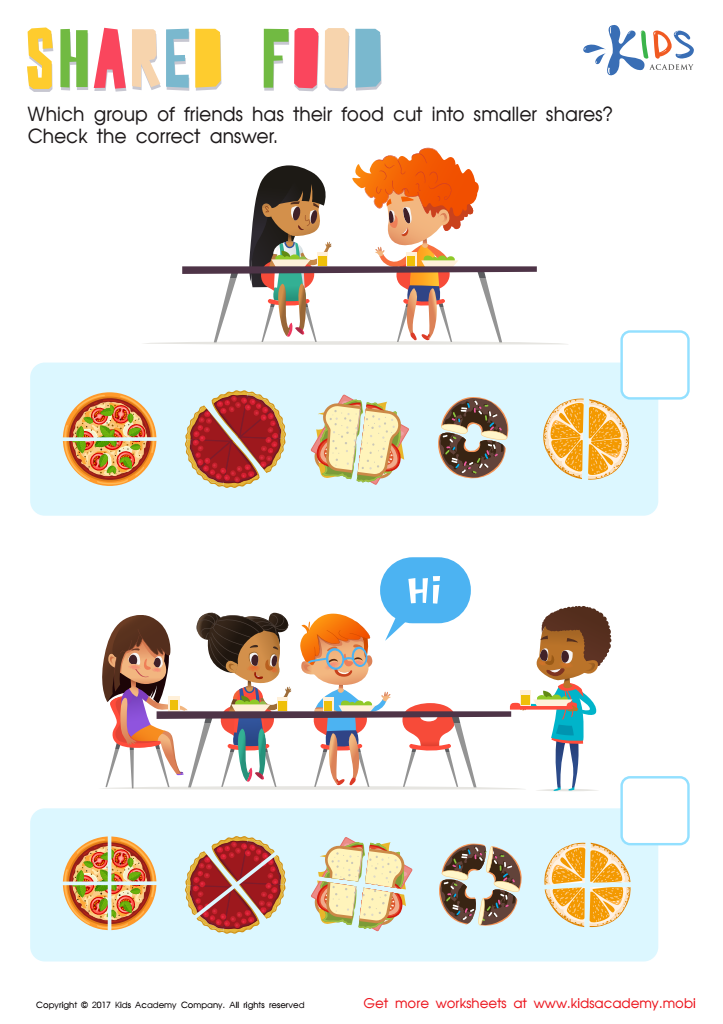

Shared Food Worksheet
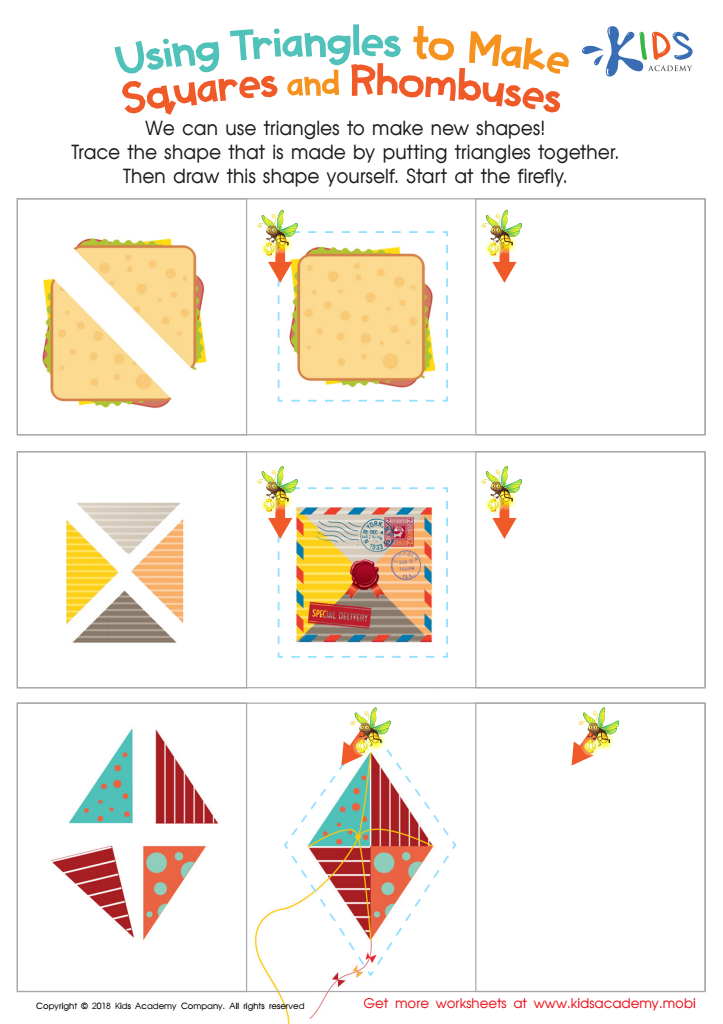

Using Triangles to Make Squares and Rhombuses Worksheet
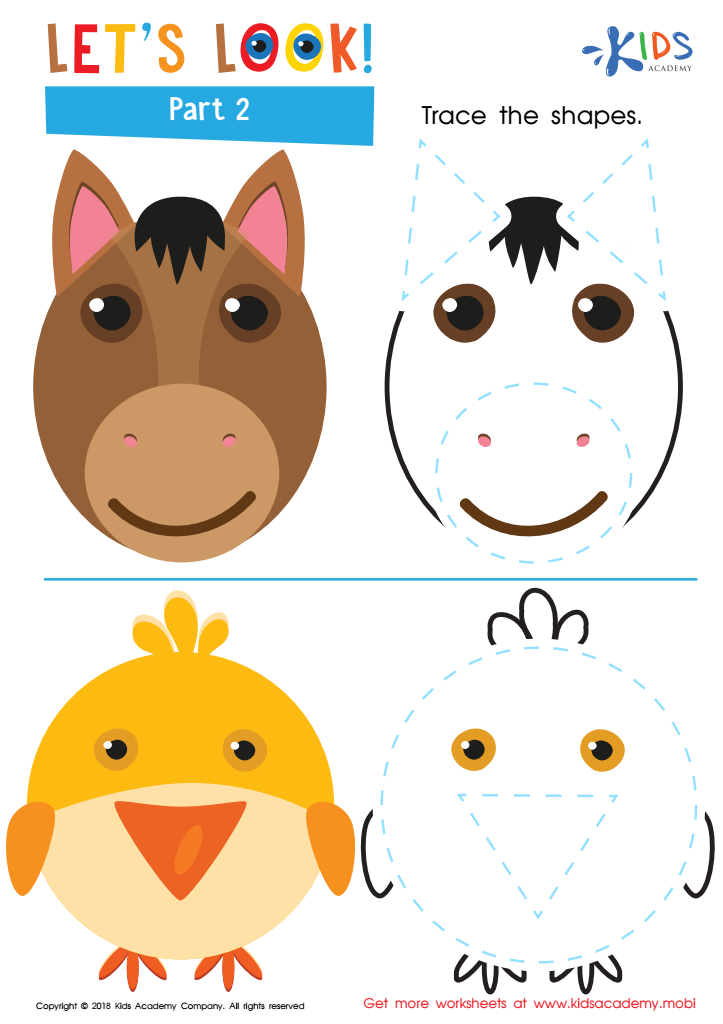

Let's Look! Part 2 Worksheet


Make the Same Pattern Worksheet
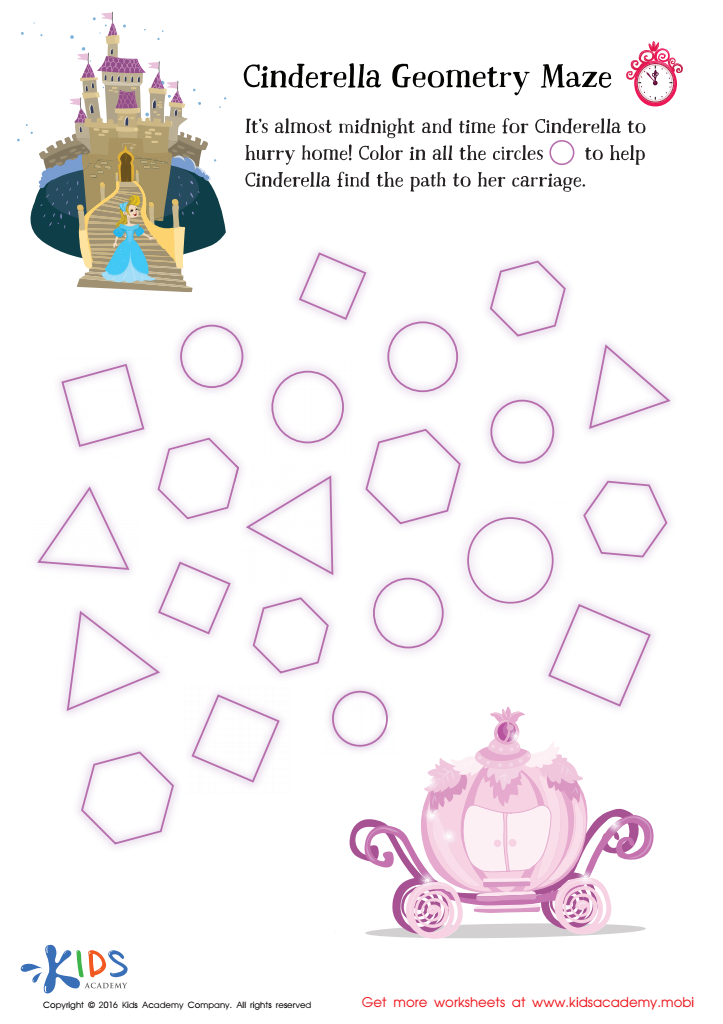

Cinderella Geometry Maze Worksheet
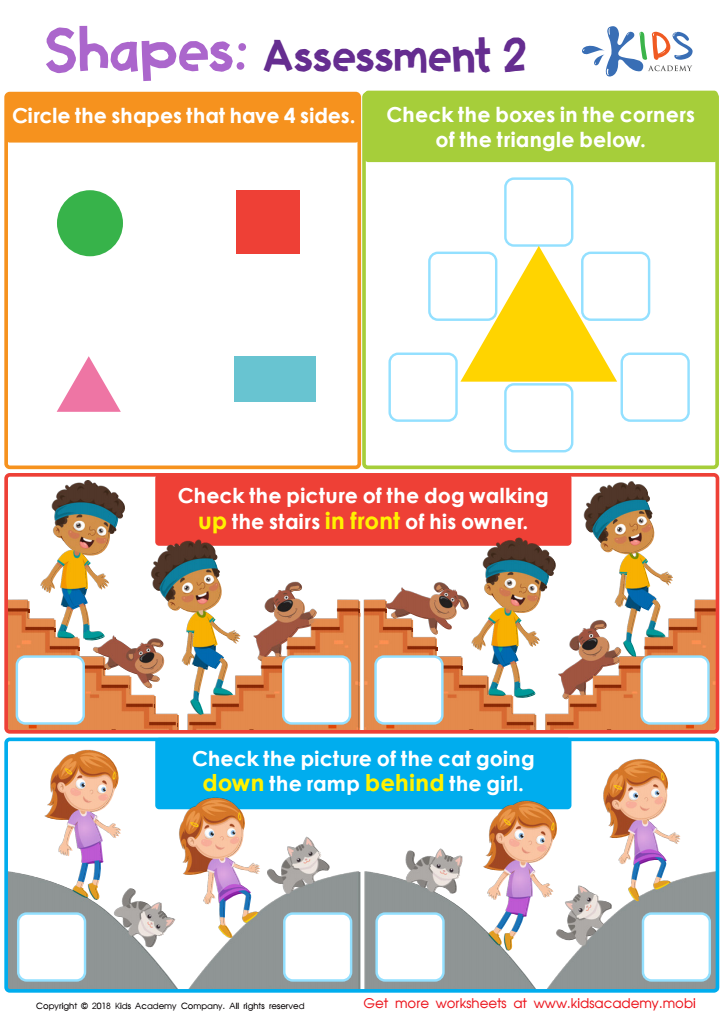

Shapes: Assessment 2 Worksheet
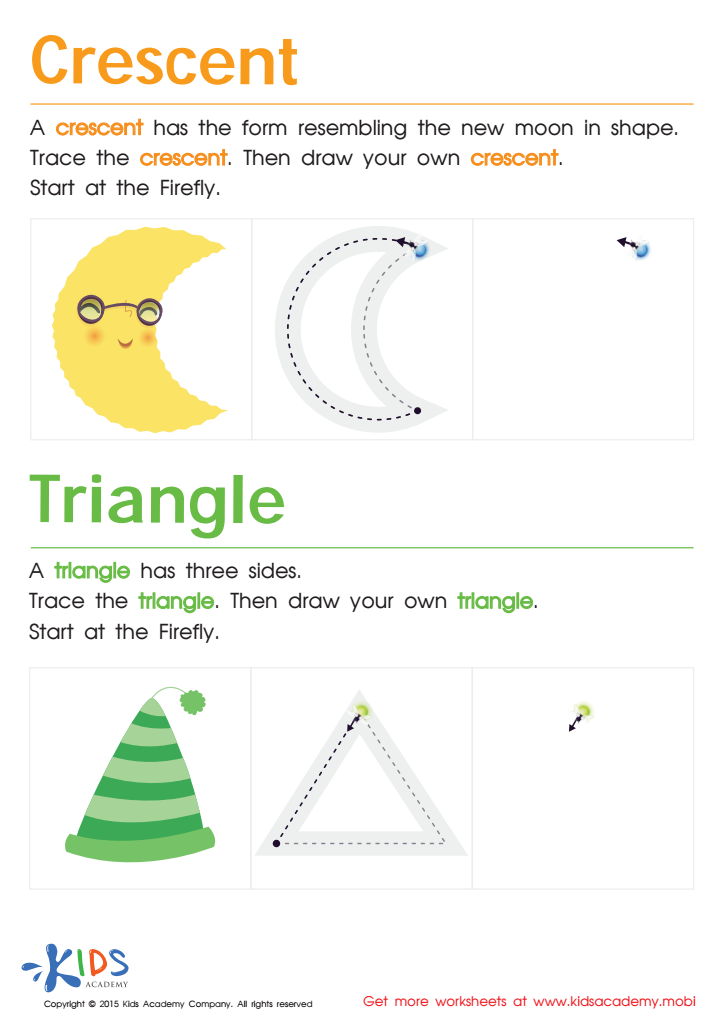

Learning to Draw Crescents And Triangles Worksheet
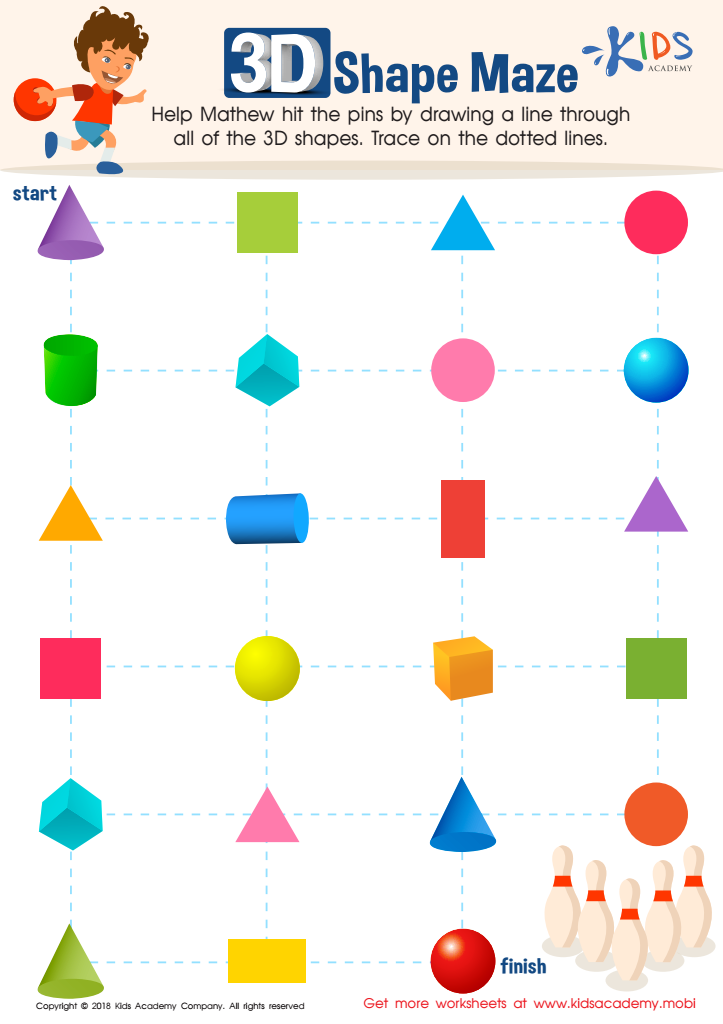

Shapes Maze Geometry Worksheet
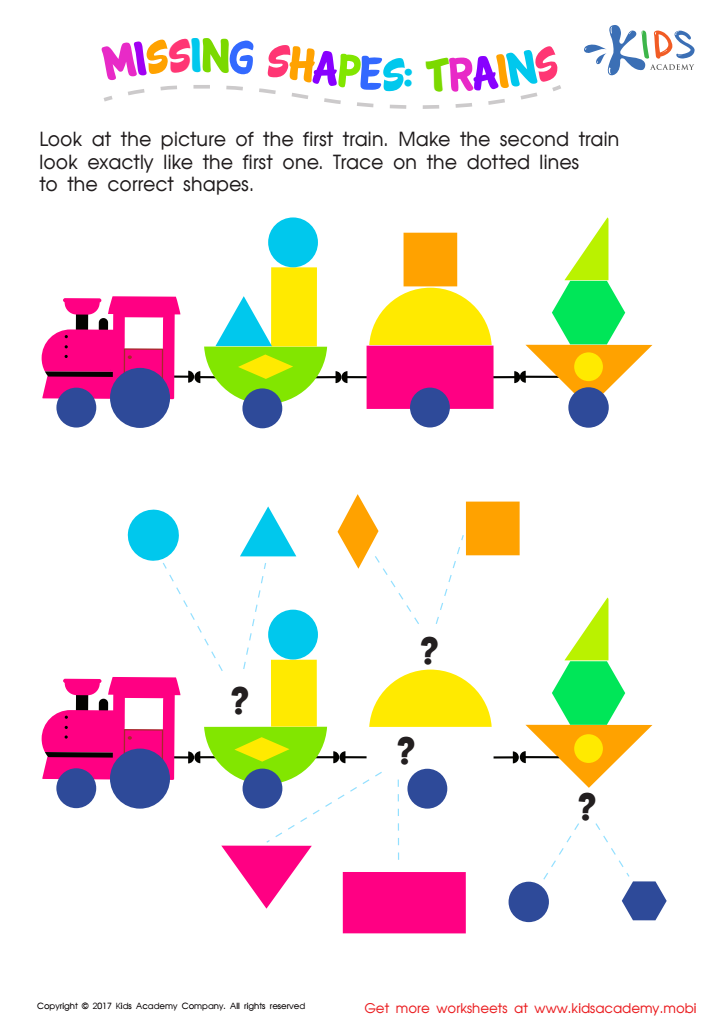

Missing Shapes: Trains Worksheet
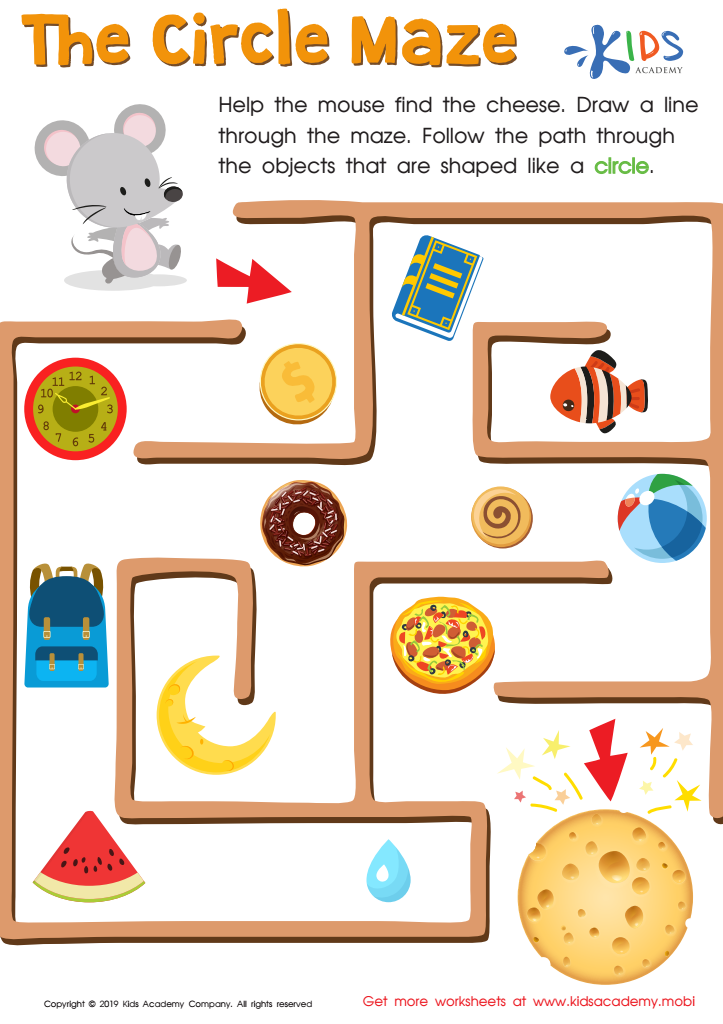

The Circle Maze Worksheet
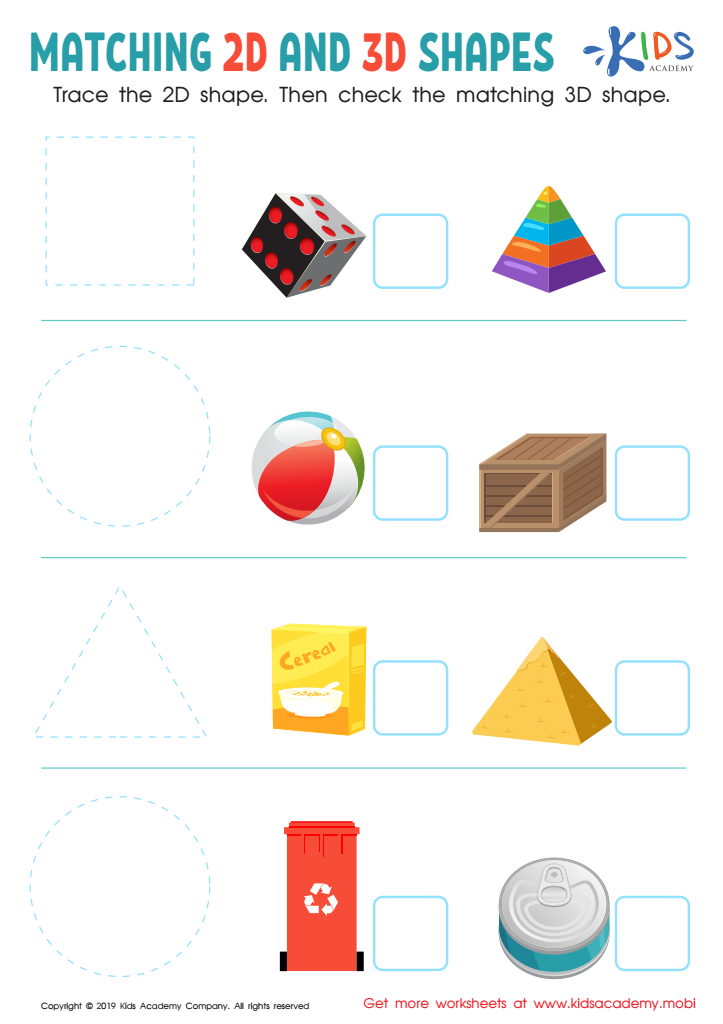

Matching 2D and 3D Shapes Worksheet
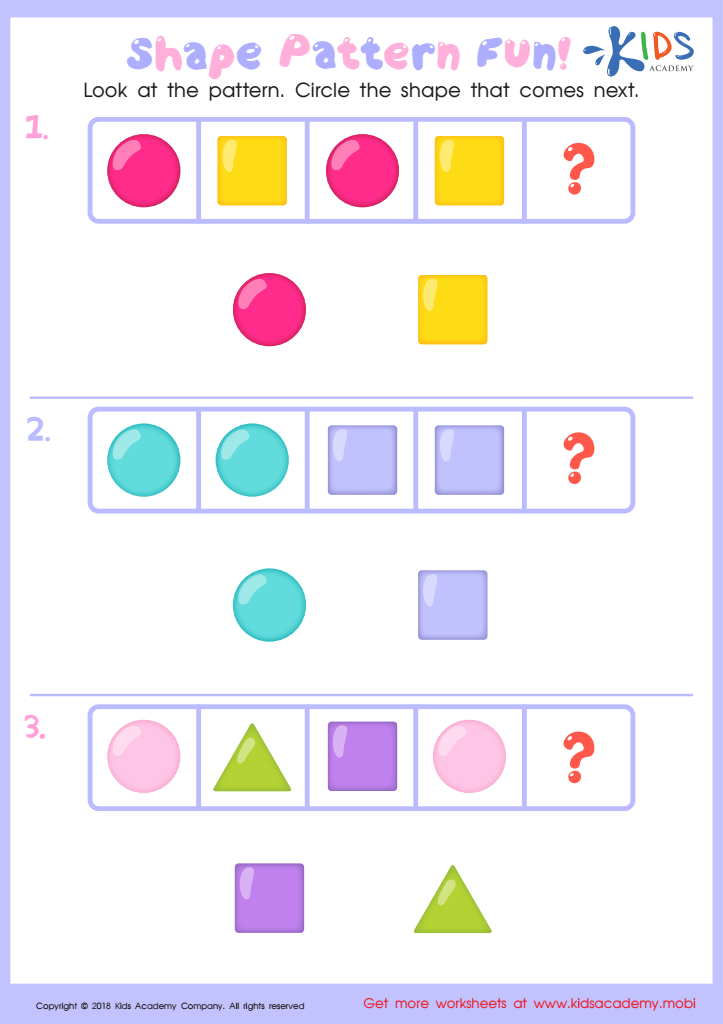

Shape Pattern Fun Worksheet
Parents and teachers should prioritize developing problem-solving skills in geometry for children aged 5-6 because these foundational abilities not only enhance mathematical understanding but also support critical thinking and analytical skills crucial for lifelong learning. At this age, children are naturally curious and learn best through hands-on experiences. Introducing geometrical concepts such as shapes, spatial awareness, and basic measurement fosters their ability to visualize problems, recognize patterns, and apply logic.
Engaging kids in solving geometric puzzles or identifying shapes in their environment encourages active participation. This hands-on exploration builds confidence and promotes persistence as they face challenges, which are essential attributes for effective problem-solving. Moreover, learning geometry facilitates interdisciplinary connections; for instance, it links to art through shape recognition and to science through spatial reasoning.
These skills are also vital for future academic success, as they provide a strong basis for advanced math topics. By nurturing problem-solving in geometry, parents and teachers help children develop essential cognitive abilities, making them adaptable thinkers prepared to tackle complex challenges in the future. Overall, instilling a solid framework for geometric problem-solving lays the groundwork for a lifelong appreciation and understanding of mathematics.
 Assign to My Students
Assign to My Students


























